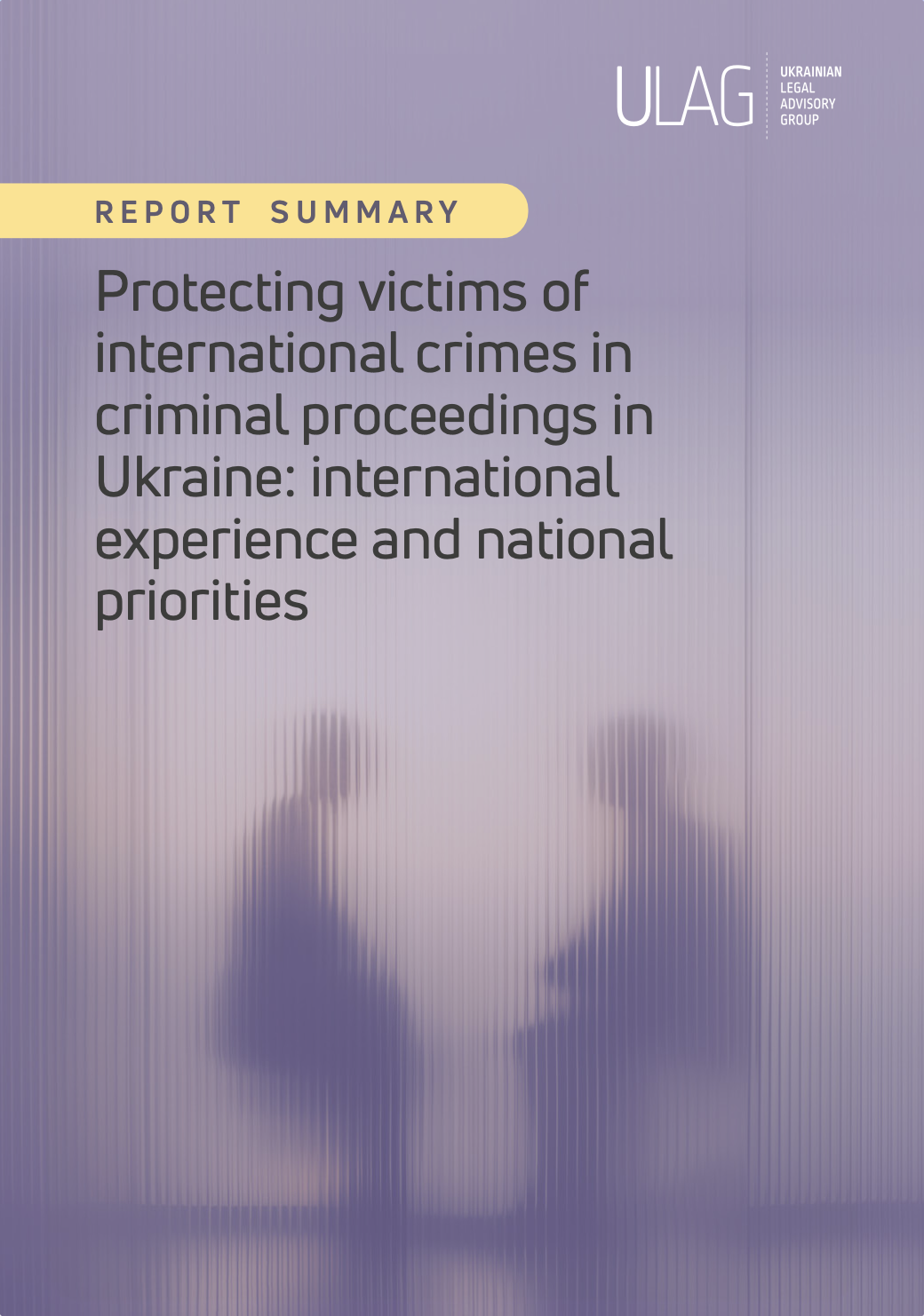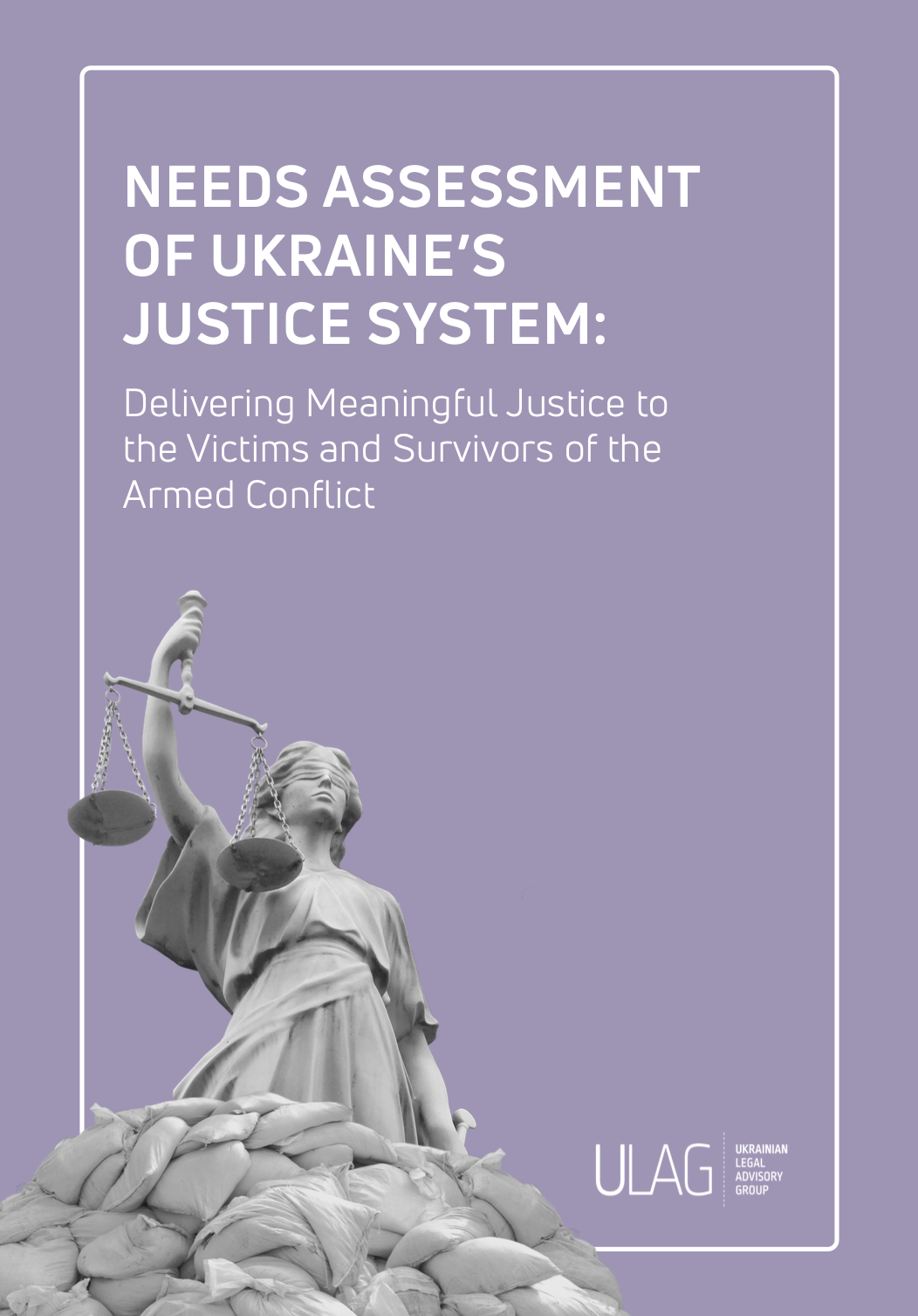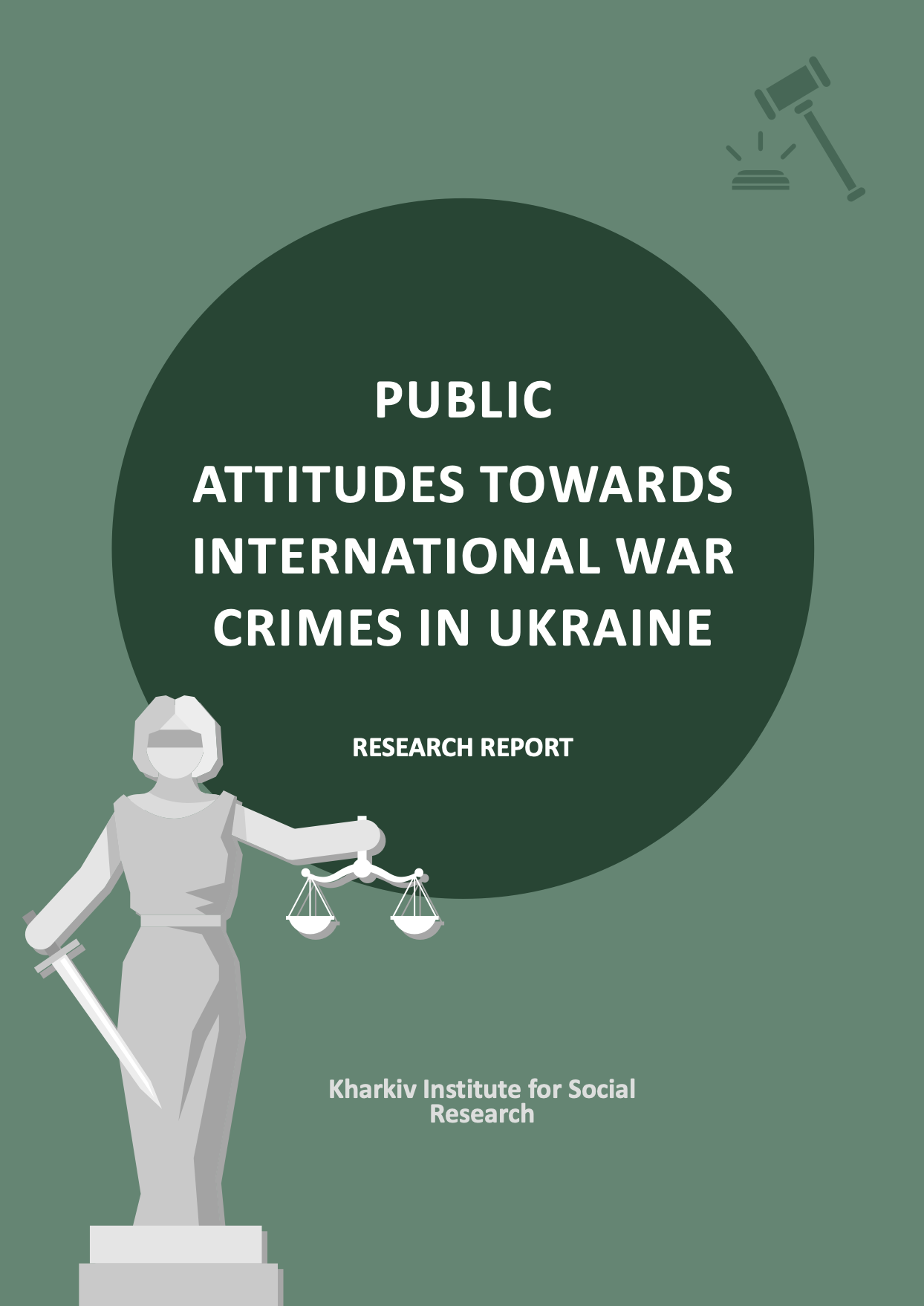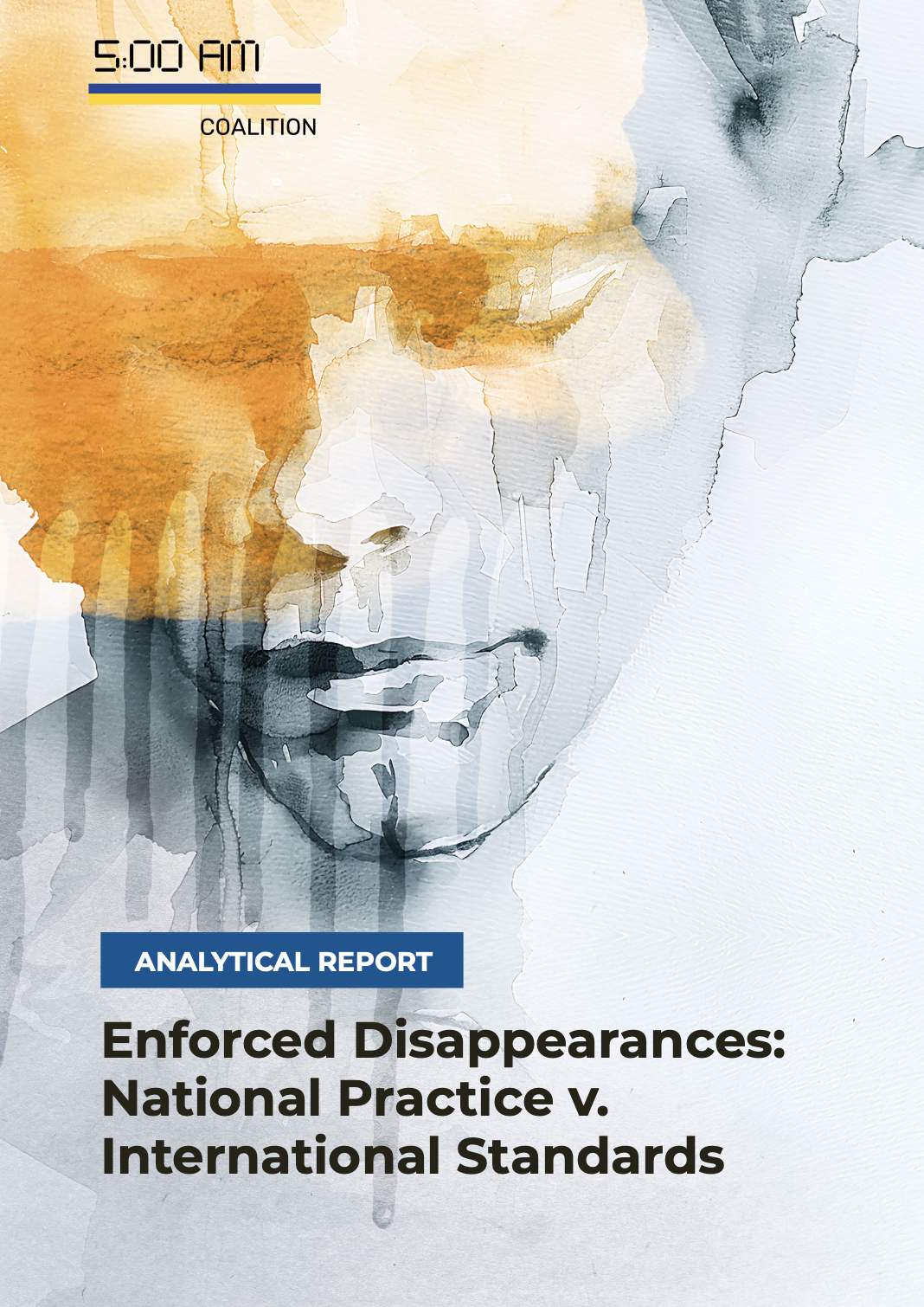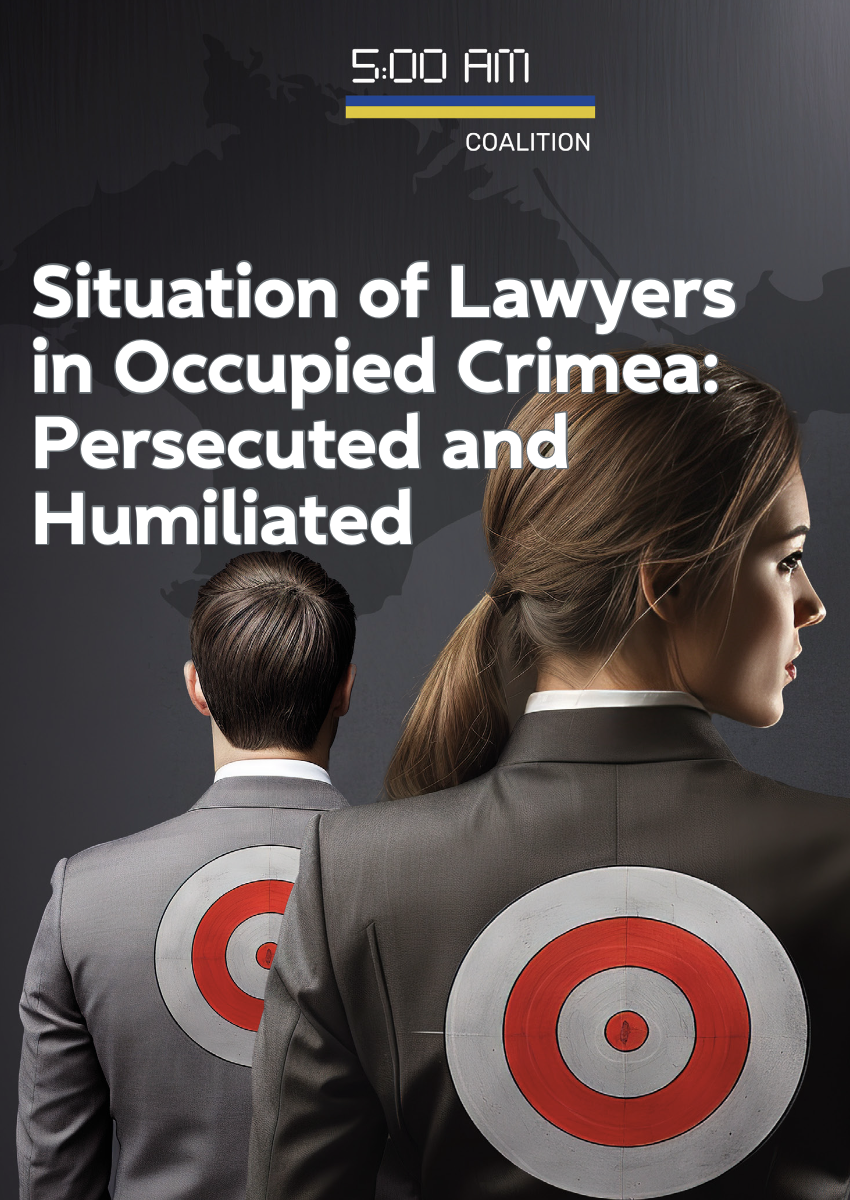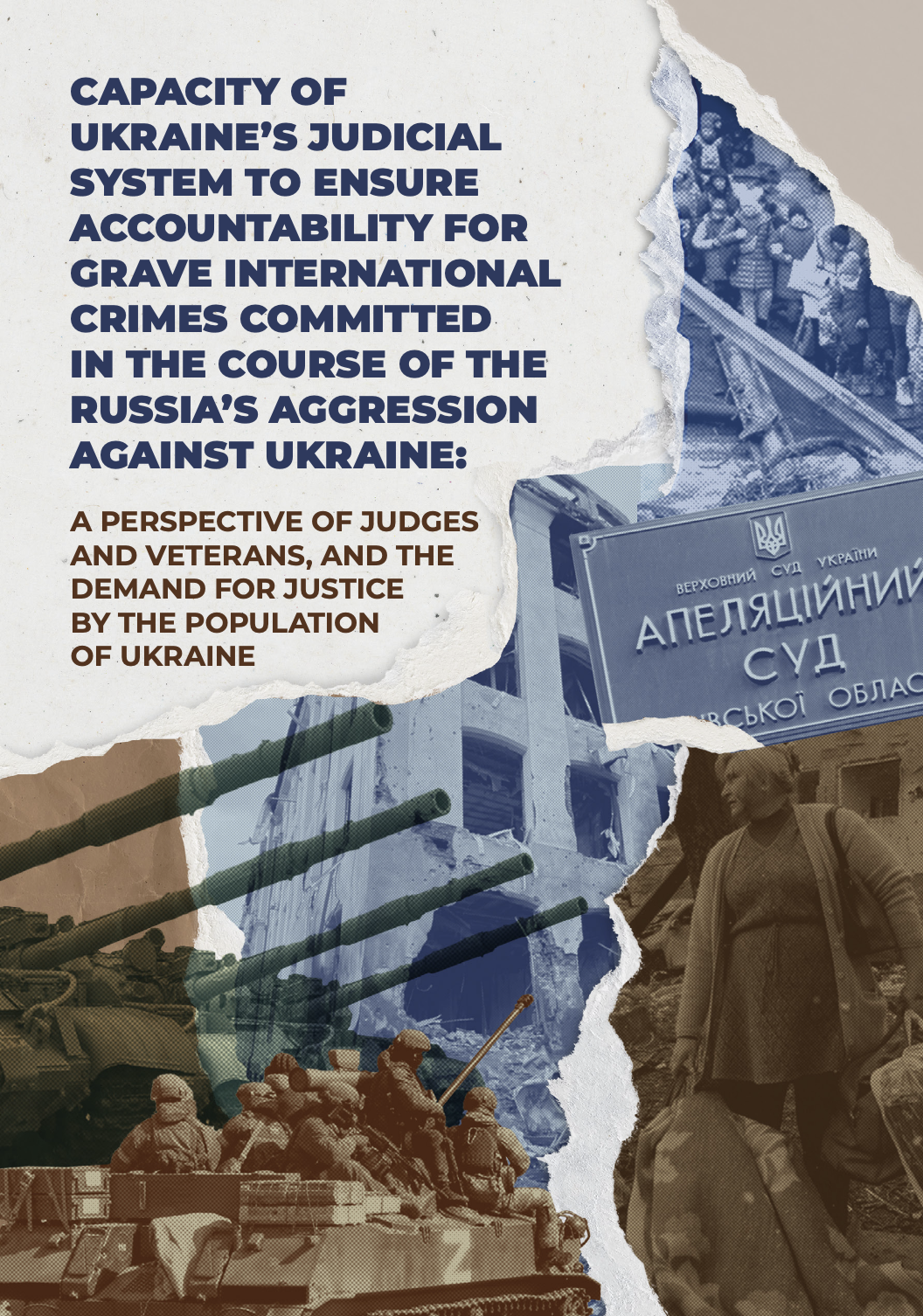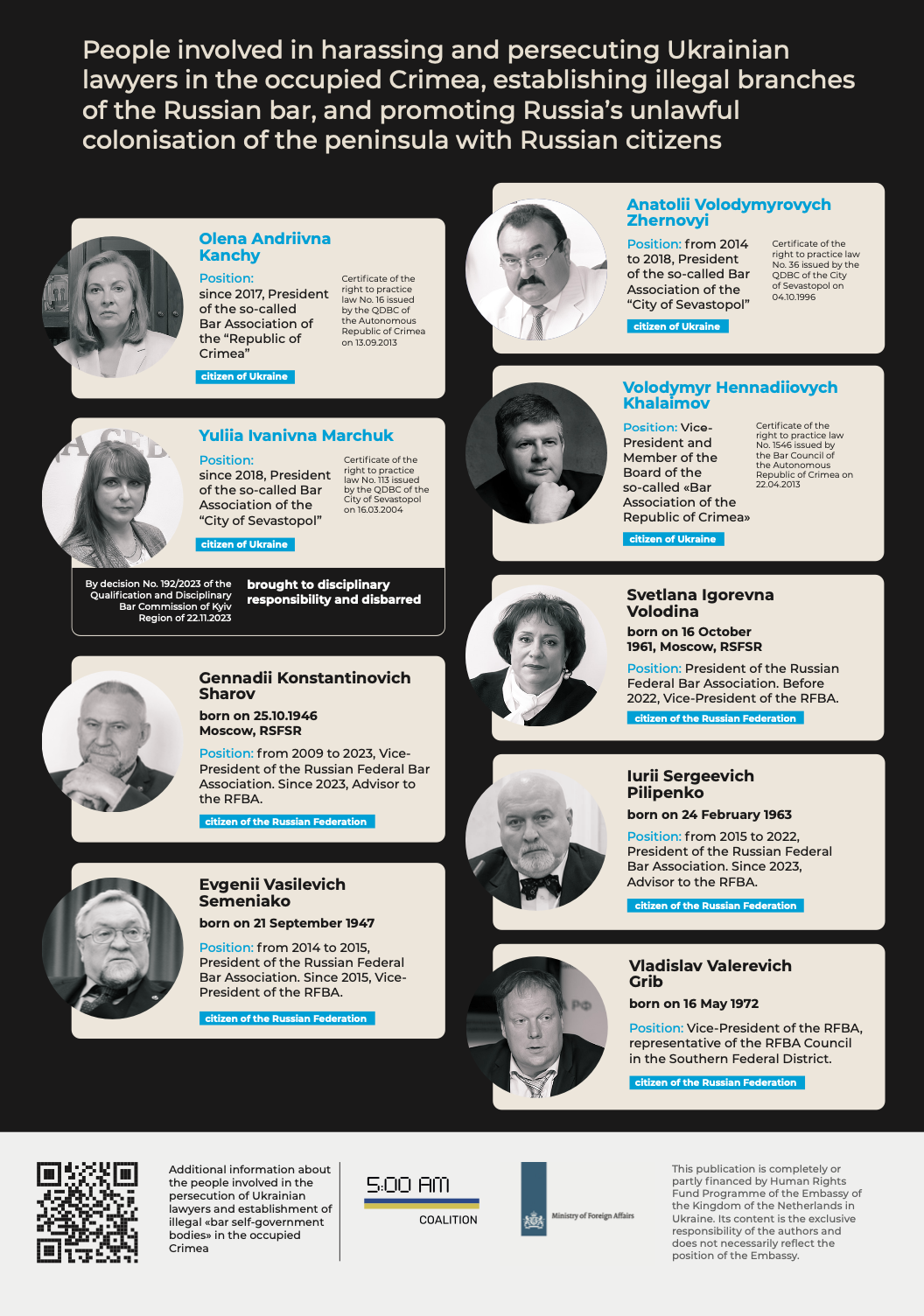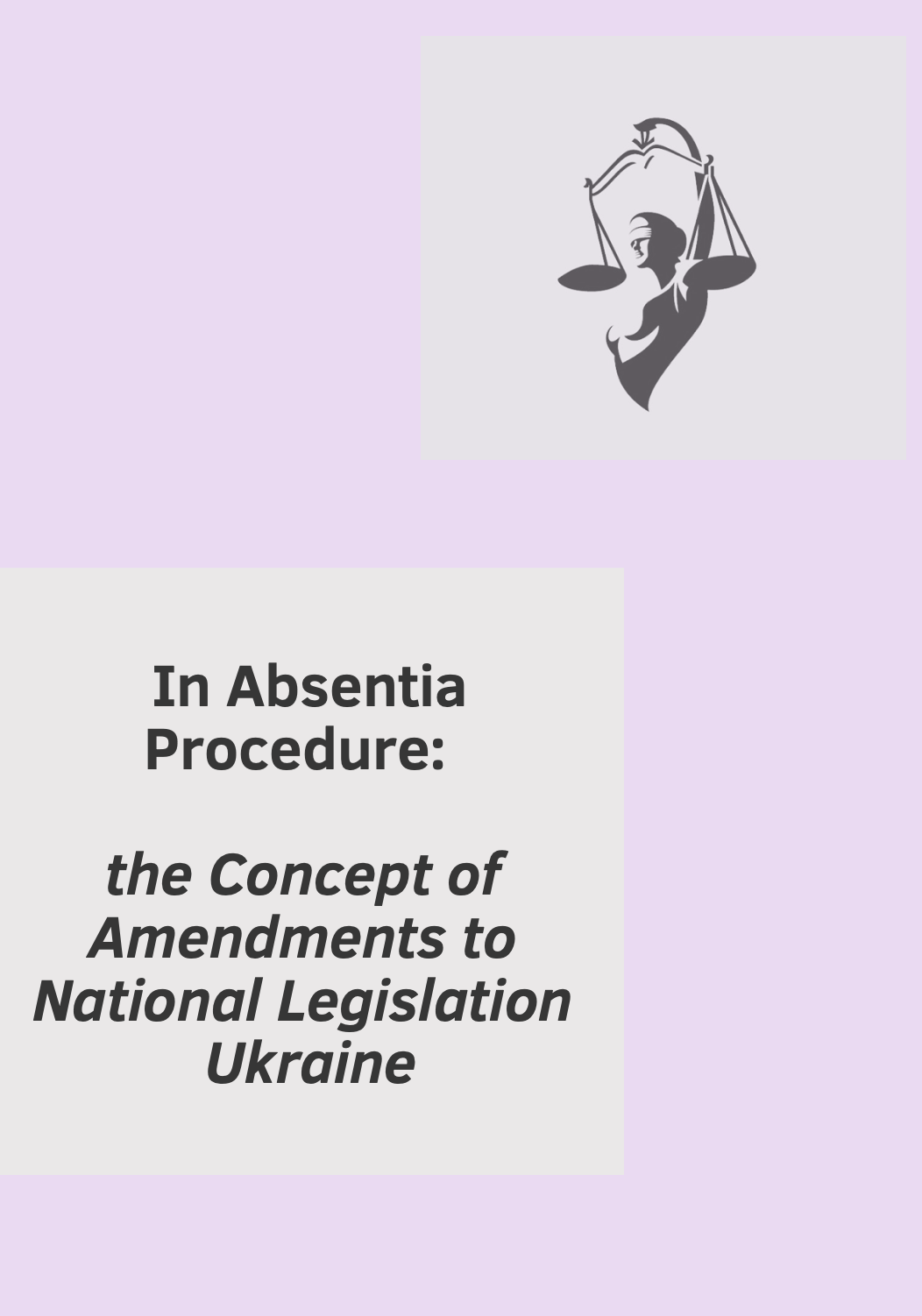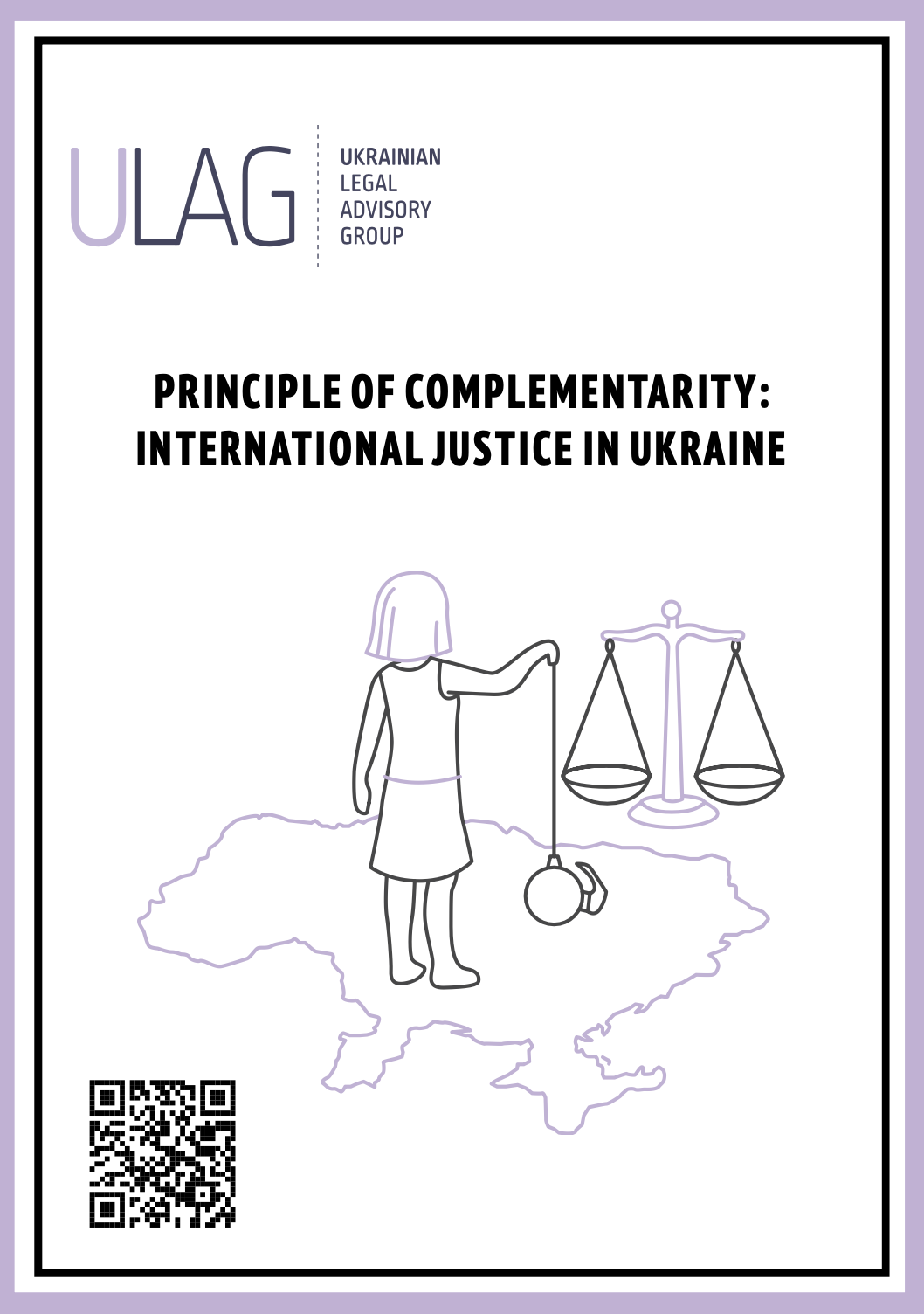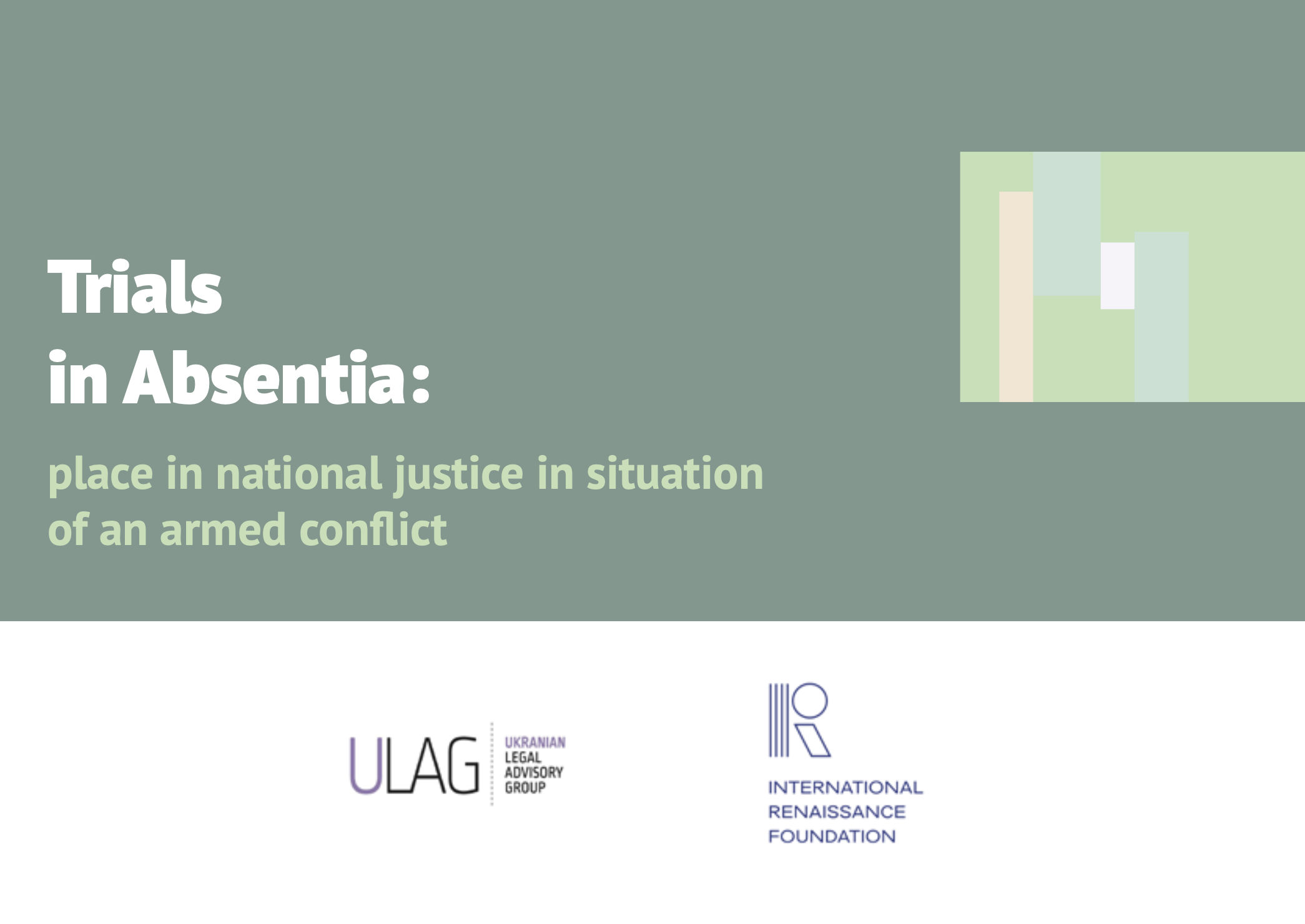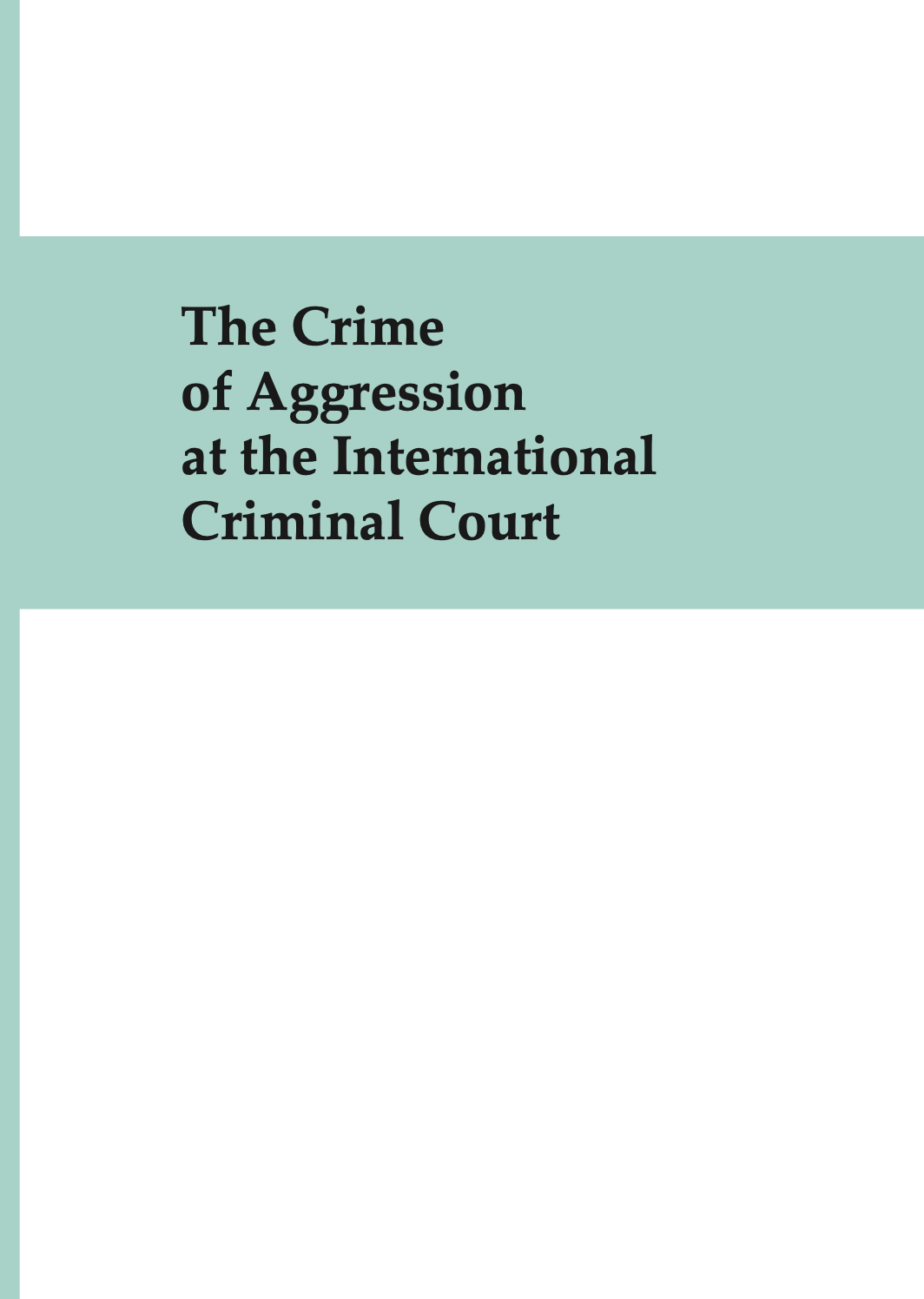Situation of Lawyers in Occupied Crimea: Persecuted and Humiliated
This analytical report highlights the persecution, harassment, and systemic violations of the rights of Ukrainian lawyers working under Russian occupation in Crimea. Based on international standards, the document presents cases of repression, interference in legal practice, and instances of state-appointed lawyers collaborating with the occupying authorities.
